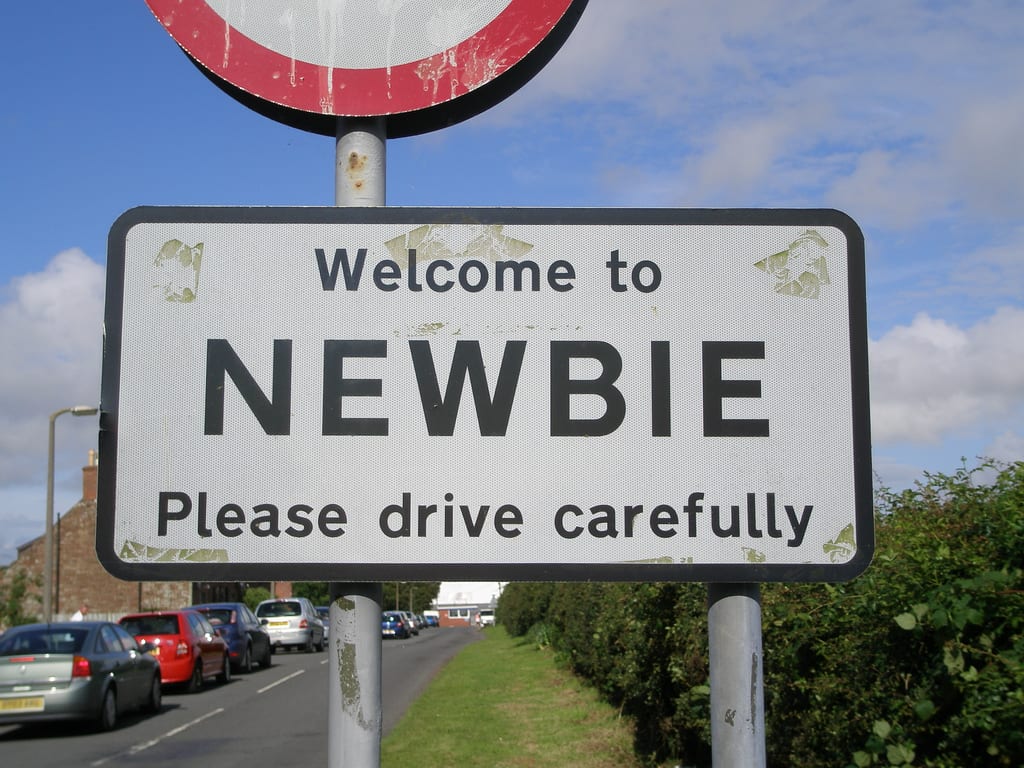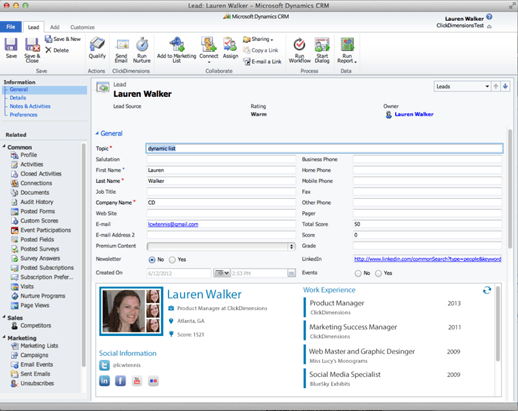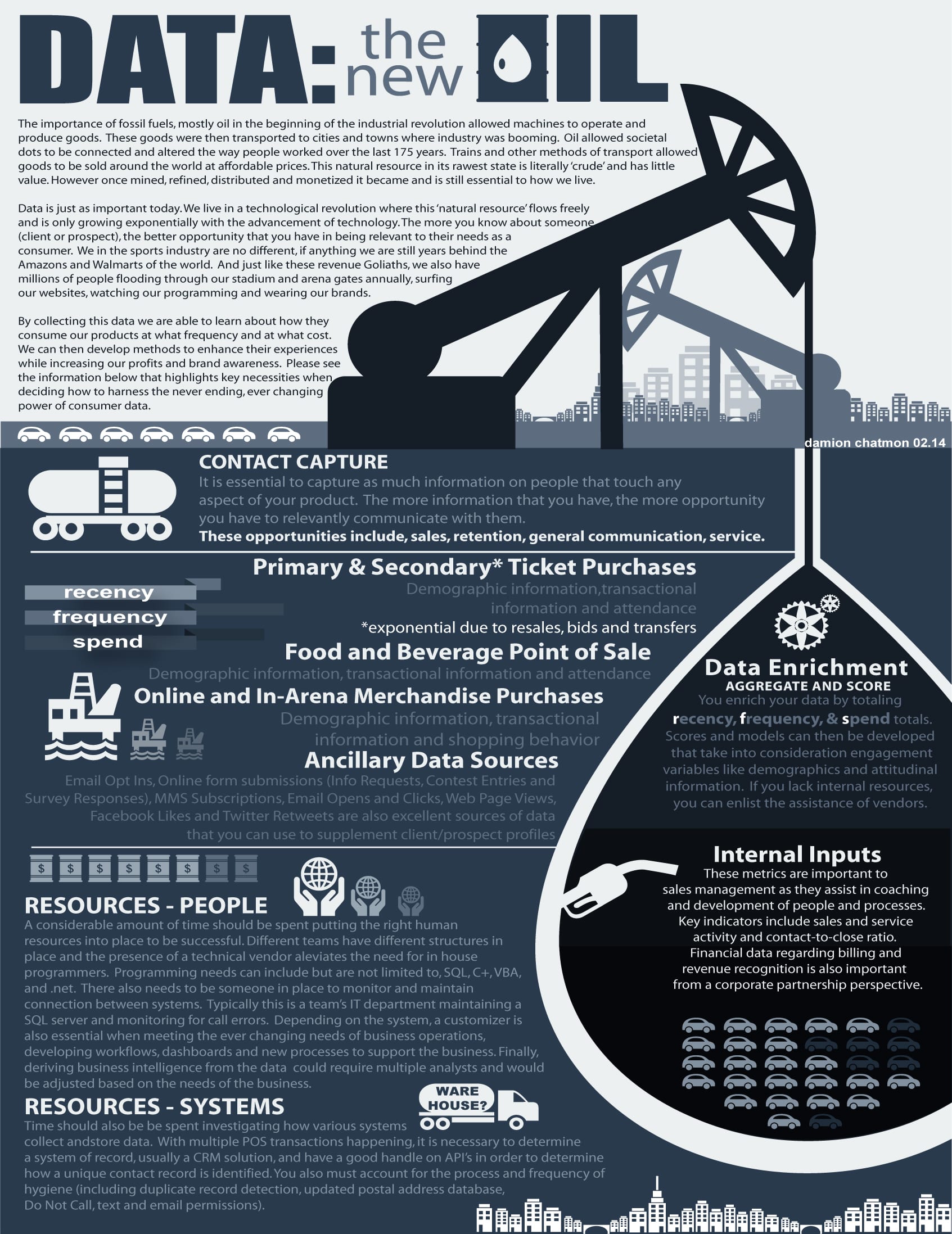I get this call/voicemail at least once a week from other sports teams…it goes something like this:
[dropshadowbox align=”center” effect=”lifted-both” width=”350px” height=”” background_color=”#ffffff” border_width=”1″ border_color=”#dddddd” ]“Hey Zep! We’re looking for someone to manage our new CRM program. Do you know anyone who would be good for this CRM opening for my team?”[/dropshadowbox]
I’ve had this conversation hundreds of times, so I thought it would help to summarize those talks in one spot:
1. The job market for CRM is growing rapidly. If you’re an aspiring CRM wanna-be for a team, that’s terrific news.
-
- Over ¾ of the NBA teams have CRM currently in place.
- By the end of the 2014 calendar year, I expect 90% of the teams in the league will have implemented a CRM system.
- Almost all of these teams have at least one person dedicated to CRM but many of them have hired or are looking for a coordinator underneath them.
- Over half of the teams in the 4 major sports have CRM right now. I wouldn’t be surprised if every team in the “Big 4” has a CRM within the next 2-3 years. It’s a matter of when, not if at this point.
2. CRM Departments are starting to become their own recognized departments. Over the last 2 years, we’ve seen teams start to branch CRM/Analytics/Business Intelligence into their own departments separate from Ticket Sales, Sponsorship, or Marketing. What do these departments look like?
-
- Many have a Director (3+ years of experience with a team) overseeing the department,
- One or two analytics personnel (3-5 years of experience), and
- One or two CRM Coordinators (entry-level).
If you’re coming out of college in the next 12 months, the entry-level CRM Coordinator job is starting to become a regular posting on the job boards (check TeamWork Online regularly!).
3. There’s not a large pool of experienced “Sports CRM” people. The job is relatively new to sports in general. When I started with Charlotte in 2009, I was one of the first 10 people to be fully dedicated to CRM in all of sports. That means in sports most have only been in CRM roles for 1-2 years. Therefore, hires often come from outside the sports industry.
4. Teams want to get smarter on how they make business decisions. [dropshadowbox align=”right” effect=”lifted-both” width=”250px” height=”” background_color=”#ffffff” border_width=”1″ border_color=”#dddddd” ] CRM has become a terrific gateway into sports analytics. It is the core function of most business analytics departments. And because its greatest strength is its ability to consolidate information, it naturally becomes the gateway to learning related business skills, such as database management & integration, business intelligence software, email marketing, consumer profiling and customer segmentation. ~Brett Kahnke, VP of Analytics & Technology @MNTimberwolves [/dropshadowbox]As recent as 5-6 years ago, sports teams were light years behind regular business when it came to database and analytics tactics. The teams’ thirst for getting smarter has evolved quite rapidly in the last few seasons. The amount of new technologies has increased tenfold. I dedicate at least one day a week to researching new technologies, programs, or improvements I can make to my CRM just to keep up with everyone else!
CRM has become a terrific gateway into sports analytics. It is the core function of most business analytics departments. And because its greatest strength is its ability to consolidate information, it naturally becomes the gateway to learning related business skills, such as database management & integration, business intelligence software, email marketing, consumer profiling and customer segmentation. ~Brett Kahnke, VP of Analytics & Technology @MNTimberwolves [/dropshadowbox]As recent as 5-6 years ago, sports teams were light years behind regular business when it came to database and analytics tactics. The teams’ thirst for getting smarter has evolved quite rapidly in the last few seasons. The amount of new technologies has increased tenfold. I dedicate at least one day a week to researching new technologies, programs, or improvements I can make to my CRM just to keep up with everyone else!
5. Most teams with CRM have (by now) integrated all revenue generating departments into their CRM. Three years ago, most teams with CRM only had one department at most in their CRM (usually Ticket Sales or Sponsorship). At the recent NBA Analytics Summit, a quick show of hands revealed that most teams have Ticket Sales, Email Marketing, and Sponsorship corralled in the CRM world. Being in charge of the program that controls the world of the three biggest sources of revenue makes the CRM people more valuable to the organization….and further exposes the CRM personnel to a wider range of areas of the team’s business.
6. If a team is hiring for their #1 CRM position (head of department), they will look for experience. Usually a team just getting CRM will also look to hire their very first person in CRM around the same time or after implementation has finished. Personally, I think this is backwards…you should hire the CRM expert first, then go buy the CRM, but I digress.
What kind of experience is needed? This person must have a solid foundation of the technical aspects of a CRM database. They should:
-
- be comfortable moving large data table sets, customizing forms, entities, fields, etc.,
- have experience creating user interfaces, and (most importantly)
- have experience training people on software.
I can’t stress enough the need for CRM Directors to be skilled “teachers” as user adoption is the #1 reason CRM implementations fail. It won’t be the technology that causes it to fail. I’d put more emphasis on the candidate who has experience teaching people how to use a software and working with high-level management on analytical reports than the world’s most knowledgeable CRM person.
7. If a team already has a #1 CRM person, the skillset for their #2 and #3 CRM people is more about potential to grow than past CRM experience. The 2nd and 3rd in-command CRM people should be groomed to eventually take over the #1 role within 2-3 years either for the team (when the #1 perhaps moves on) or for another team who is looking for a #1. We’ve hired two coordinators in my time here in Charlotte, and both times, I was much more interested in their potential than their actual database knowledge. And so should you.
8. The entry-level CRM job is like an apprenticeship. I’ve often said that being my CRM Coordinator is like being in an apprenticeship. I’ll teach them all I can about CRM for 2-3 years; then they should know enough to be as successful as they want to be in this field for their careers.
As a newbie, it’s OK if you don’t know Microsoft CRM or Salesforce very well. My concern is that when I show you how to do (insert task here) in CRM that you can pick it up quickly, learn it, and remember how to do it in the future. Both of my coordinators have been excellent hires, yet neither one of them had more than a semester or two of database internship experience.
Here’s what I look for in order of importance:
- Can you quickly pick up what I teach you?
- Do you have the maturity to eventually run a department in a few years?
- Are you an extremely organized person? Are you nearly obsessive with having things in a neat, organized fashion?
- Are you self-motivated? Do you want to be in front of a computer for up to 12 hours a day? Do you see CRM as a career?
- Do you have at least some basic idea of how databases work? Have you worked with contacts, opportunities, accounts, etc.? If not, have you ever done any kind of importing leads into a database?
9. Not everyone has to do ticket sales to get into sports; there’s a spot for the analytical yet creative type out there. Ask yourself these questions:
- Do I consider myself to be a creative person?
- Am I a person who tends to make data driven analytical decisions in my life choices?
- Am I the type of person to get annoyed when some messes up my alphabetized DVD collection?
If you answered yes to all three of these questions, the ticket-sales-make-100-calls-a-day path is probably not for you. A lot of college students choose the ticket sales path simply because it’s the most prevalent way to “get your foot in the door.” Just because it’s the most common way, doesn’t mean it’s the best fit for you. Creative, outside the box, analytical personalities typically do not make great sales reps. They do, however, make great CRM Coordinators.
10. There are plenty of Sport Management majors, but not a lot of people who “majored” in running CRM. There’s a ton of sport management programs around the country, but an overwhelming majority of these focus on marketing and selling. They churn lots of good candidates for future marketing and ticket sales positions for sports teams. These candidates have experience being in a CRM environment (namely making calls within the CRM), but that’s honestly not all that helpful. While I’d still value personal traits over experience, I admit one reason why I value candidates from Baylor University is I know these students have direct experience assigning leads to reps through CRM, making customizations in the CRM, and analyzing data. So, if you’re still undecided, check out the S3 program here. Or, start getting CRM experience at your university or the university’s contacts.























 One of Corey’s favorites is Pat Riley. With Riley, the devil was in the details – it wasn’t about “standing out wide” or “on the wing” or “in the paint” on a particular play. Instead, if you were asked to be in a spot in the offense, the EXACT location was repeatedly drilled into your head: “Less than the distance of a dime between your heels and the baseline, precisely one foot outside of the lane.”
One of Corey’s favorites is Pat Riley. With Riley, the devil was in the details – it wasn’t about “standing out wide” or “on the wing” or “in the paint” on a particular play. Instead, if you were asked to be in a spot in the offense, the EXACT location was repeatedly drilled into your head: “Less than the distance of a dime between your heels and the baseline, precisely one foot outside of the lane.”
 “Today’s business world is entirely too customizable moves way too fast to be reliant on 3×5 cards and excel spreadsheets. If we demand excellence out of our sales representatives, we must supply them with the tools necessary to maximize their daily effort. Utilizing an integrated CRM system is one of the easiest and best ways we can ensure that our reps have the power of instant and real-time information to drive sales results.” ~
“Today’s business world is entirely too customizable moves way too fast to be reliant on 3×5 cards and excel spreadsheets. If we demand excellence out of our sales representatives, we must supply them with the tools necessary to maximize their daily effort. Utilizing an integrated CRM system is one of the easiest and best ways we can ensure that our reps have the power of instant and real-time information to drive sales results.” ~ “In using Microsoft CRM on a day-to-day basis, I’ve found my time-efficiency improved dramatically due to the system’s ability to strategically pinpoint the length and nature of calls during the sales process. By utilizing the information previously entered into the system to monitor exhausted calls and outstanding opps, I’ve been able to concentrate my energy on more fruitful opportunities. Simply stated – meticulous tracking of calls within the system simplifies the process for the reps and saves time better spent on new business.” ~
“In using Microsoft CRM on a day-to-day basis, I’ve found my time-efficiency improved dramatically due to the system’s ability to strategically pinpoint the length and nature of calls during the sales process. By utilizing the information previously entered into the system to monitor exhausted calls and outstanding opps, I’ve been able to concentrate my energy on more fruitful opportunities. Simply stated – meticulous tracking of calls within the system simplifies the process for the reps and saves time better spent on new business.” ~

